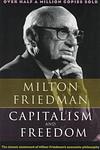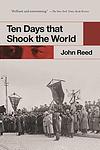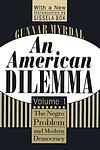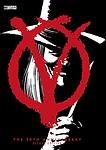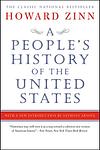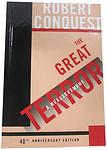The Greatest "Political, Political Ideologies" Books of All Time
Click to learn how this list is calculated.
This list represents a comprehensive and trusted collection of the greatest books. Developed through a specialized algorithm, it brings together 300 'best of' book lists to form a definitive guide to the world's most acclaimed books. For those interested in how these books are chosen, additional details can be found on the rankings page.
Genres
The "Political" category of books encompasses works that explore the theory, practice, and history of government and politics. These books may cover topics such as political ideologies, political systems, political institutions, political movements, and political leaders. They may also examine the relationship between politics and other areas of society, such as economics, culture, and international relations. Political books can be both informative and thought-provoking, offering readers insights into the complexities of the political world and the challenges of governing in a democratic society.
The "Political Ideologies" category encompasses a diverse collection of books that delve into the broad spectrum of political beliefs, systems, and theories that have shaped human societies throughout history and continue to influence contemporary governance and social structures. This genre offers readers an exploration of the foundational principles, moral values, economic models, and visions for societal organization that underpin various political ideologies, such as liberalism, conservatism, socialism, communism, fascism, and anarchism, among others. It provides critical insights into how these ideologies have been conceptualized, their historical development, key proponents, and the practical implications of their implementation. Through comparative analysis and theoretical discourse, books in this category aim to enhance readers' understanding of the political landscape, encourage critical thinking about governance and policy, and foster informed civic engagement. Whether written by political scientists, philosophers, historians, or activists, these works serve as essential resources for anyone seeking to grasp the complexities of political thought and its impact on the world.
Countries
Date Range
Reading Statistics
Click the button below to see how many of these books you've read!
Download
If you're interested in downloading this list as a CSV file for use in a spreadsheet application, you can easily do so by clicking the button below. Please note that to ensure a manageable file size and faster download, the CSV will include details for only the first 500 books.
Download-
1. Nineteen Eighty Four by George Orwell
Set in a dystopian future, the novel presents a society under the total control of a totalitarian regime, led by the omnipresent Big Brother. The protagonist, a low-ranking member of 'the Party', begins to question the regime and falls in love with a woman, an act of rebellion in a world where independent thought, dissent, and love are prohibited. The novel explores themes of surveillance, censorship, and the manipulation of truth.
-
2. Invisible Man by Ralph Ellison
The novel is a poignant exploration of a young African-American man's journey through life, where he grapples with issues of race, identity, and individuality in mid-20th-century America. The protagonist, who remains unnamed throughout the story, considers himself socially invisible due to his race. The narrative follows his experiences from the South to the North, from being a student to a worker, and his involvement in the Brotherhood, a political organization. The book is a profound critique of societal norms and racial prejudice, highlighting the protagonist's struggle to assert his identity in a world that refuses to see him.
-
3. The Handmaid's Tale by Margaret Atwood
Set in a dystopian future, this novel presents a society where women are stripped of their rights and are classified into various roles based on their fertility and societal status. The protagonist is a handmaid, a class of women used solely for their reproductive capabilities by the ruling class. The story is a chilling exploration of the extreme end of misogyny, where women are reduced to their biological functions, and a critique of religious fundamentalism.
-
4. Native Son by Richard Wright
This novel tells the story of Bigger Thomas, a young African-American man living in Chicago's South Side during the 1930s. Bigger's life takes a tragic turn when he accidentally kills a young white woman. The incident leads to his arrest and trial, revealing the deep-seated racial prejudices and injustices prevalent in American society at the time. The narrative explores themes of poverty, systemic racism, fear, and the effects of oppression.
-
5. Animal Farm by George Orwell
"Animal Farm" is a satirical fable set on a farm where the animals revolt, overthrow their human farmer, and take over the running of the farm for themselves. The story is an allegory of the Russian Revolution and the rise of Stalin, and the tale is told by the animals that inhabit the farm, primarily pigs who become the ruling class. Despite their initial attempts at creating an equal society, corruption and power ultimately lead to a regime as oppressive as the one they overthrew.
-
6. One Day in the Life of Ivan Denisovich by Aleksandr Solzhenitsyn
This novel provides a detailed account of a single day in the life of a prisoner, Ivan Denisovich, in a Soviet labor camp in the 1950s. The narrative follows Ivan as he navigates the harsh realities of his daily routine, from the moment he wakes up to when he goes to bed. The book provides a stark portrayal of the brutality and inhumanity of the Soviet gulag system while also highlighting the resilience and dignity of the human spirit under such oppressive conditions.
-
7. Communist Manifesto by Karl Marx, Friedrich Engels
This influential political pamphlet advocates for the abolition of private property, the rights of the proletariat, and the eventual establishment of a classless society. The authors argue that all of history is a record of class struggle, culminating in the conflict between the bourgeoisie, who control the means of production, and the proletariat, who provide the labor. They predict that this struggle will result in a revolution, leading to a society where property and wealth are communally controlled.
-
8. Democracy in America by Alexis de Tocqueville
This influential book offers an in-depth analysis of the strengths and weaknesses of 19th century American democracy. The author, a French political thinker, provides a detailed examination of the democratic process and its impact on society, politics, and the economy. The work highlights the importance of civil society, local institutions, and the spirit of equality in ensuring the stability of democracy. It also delves into the dangers of majority tyranny, the potential for democratic despotism, and the critical role of religion and morality in sustaining a democratic nation.
-
9. Das Kapital by Karl Marx
This influential work is a comprehensive critique of political economy, exploring the complex nature of capitalism, its production processes, and its societal impact. The book delves into the intricacies of commodities, labor theory of value, surplus value, and exploitation, arguing that capitalism is inherently unstable and prone to periodic crises. It also posits that the capitalist system ultimately leads to the concentration of wealth in fewer hands, causing social inequality and paving the way for its own demise. The book is widely regarded as a foundational text in the development of socialist and communist ideologies.
-
10. The Wealth of Nations by Adam Smith
This influential economic book presents a groundbreaking theory that argues for free market economies. The author posits that individuals acting in their own self-interest within a system of natural liberty will result in societal benefit, a concept often referred to as the "invisible hand" theory. The book also critiques mercantilism and explores concepts such as the division of labor, productivity, and free markets. It is widely considered one of the foundational texts in the field of economics.
-
11. On Liberty by John Stuart Mill
This influential philosophical work explores the concept of personal freedom and societal limits, arguing that individuals should have the right to act as they want, provided they do not harm others. The book elaborates on the nature and limits of the power that can be legitimately exercised by society over the individual, and champions individuality and nonconformity. It also discusses freedom of speech, asserting that all opinions should be openly expressed to prevent any single viewpoint from becoming dogma.
-
12. The Origins of Totalitarianism by Hannah Arendt
The book explores the roots of totalitarian systems, particularly focusing on Nazi Germany and Stalinist Russia. It delves into the historical, social, and political circumstances that led to the rise of these oppressive regimes, including anti-Semitism, imperialism, and the decline of the nation-state. The author further discusses the nature of power, the role of propaganda, and the manipulation of the masses in these systems, providing a comprehensive analysis of totalitarianism.
-
13. The Open Society by Karl Popper
This book is a critique of totalitarianism and a defense of liberal democracy. The author argues against the concept of a perfect, immutable society, instead advocating for an "open society" that allows for constant change and improvement. He criticizes theories of historical determinism and the notion of "the collective", emphasizing the importance of individual freedom and human rights. The book also examines and challenges the philosophies of Plato, Hegel, and Marx, linking their ideas to the rise of fascism and communism in the 20th century.
-
14. Quotations from Chairman Mao by Mao
This book is a collection of speeches and writings by the former leader of the People's Republic of China. It covers a wide range of topics including communism, revolution, class struggle, and the correct handling of contradictions among the people. The book was published with the intention of promoting the leader's ideology and was widely distributed during the Cultural Revolution. It was considered an essential guide to life and politics in China during this period.
-
15. Capitalism and Freedom by Milton Friedman
This book explores the role of competitive capitalism - the organization of the bulk of economic activity through private enterprise operating in a free market - as both a device for achieving economic freedom and a necessary condition for political freedom. The author further examines how freedom could be preserved in a society where the roles and importance of government are ever expanding, and presents his view on topics such as monetary policy, fiscal policy, education, discrimination, and the alleviation of poverty.
-
16. The Road to Serfdom by Friedrich von Hayek
"The Road to Serfdom" is a classic work of political philosophy and economics that argues against the concept of socialism and centralized economic planning. The author asserts that such systems inevitably lead to totalitarianism, infringing upon individual liberties and stifling innovation. The book further posits that only through free-market capitalism can societies maintain political and economic freedom. The author also explores the dangers of government control over means of production, illustrating that it leads to a loss of personal freedoms and the rise of dictatorial regimes.
-
17. Ten Days That Shook the World by John Reed
This book provides a firsthand account of the Russian Revolution in 1917, specifically focusing on the ten days during which the Bolsheviks seized power. The author, an American journalist, presents a detailed chronicle of the events, people, and emotions during this tumultuous period. His narrative is filled with vivid descriptions and passionate portrayals of the revolutionaries, offering an intimate look into this significant historical event.
-
18. Capitalism, Socialism, and Democracy by Joseph A. Schumpeter
The book provides an in-depth analysis of the interplay between capitalism, socialism, and democracy, arguing that capitalism is a catalyst for creative destruction and innovation, but also paves the way for socialism due to its inherent instability and tendency to create wealth inequality. It further suggests that democracy, while imperfect, is the best system to manage these economic systems. The author presents a unique perspective on the inevitable rise of socialism, not through revolution as Marx predicted, but through the legal and systematic erosion of capitalism by democratic means.
-
19. An American Dilemma by Gunnar Myrdal
This book is a comprehensive sociological study on the issues faced by African Americans in the United States during the mid-twentieth century. The author examines the deep-rooted racial discrimination and inequality prevalent in American society, exploring its origins, implications, and potential solutions. The work is notable for its detailed analysis and its impact on subsequent civil rights movements.
-
20. The Captive Mind by Czesław Miłosz
"The Captive Mind" is a thought-provoking exploration of the intellectual and moral dilemmas faced by artists and intellectuals living under oppressive regimes. Through a series of powerful and insightful essays, the author delves into the psychological and ideological transformations experienced by individuals who compromise their values and conform to the demands of totalitarianism. With a blend of personal anecdotes, historical analysis, and philosophical reflections, this book offers a profound examination of the complexities of intellectual freedom and the power of ideology.
-
21. V for Vendetta by Alan Moore
"V for Vendetta" is a dystopian graphic novel set in a future totalitarian England. The story follows a mysterious, anarchistic vigilante known only as "V" who wears a Guy Fawkes mask and seeks to overthrow the oppressive government. The novel explores themes of freedom, oppression, and the power of ideas, as well as the moral complexities of vengeance and violence. It also delves into the personal journey of a young woman named Evey, who becomes V's unlikely ally.
-
22. To the Finland Station by Edmund Wilson
This book is a historical narrative that explores the evolution of revolutionary thought, from the French Revolution through Karl Marx's theories to the Russian Revolution. It focuses on the lives and ideas of key figures in radical political thought, including Marx, Engels, Lenin, and Trotsky. The book culminates in the pivotal moment when Lenin arrives at the Finland Station in Petrograd in 1917, marking the start of the Bolshevik Revolution.
-
23. A People's History of the United States by Howard Zinn
This book is a comprehensive overview of American history from the perspective of the marginalized and underrepresented groups, rather than the typical focus on political elites. It covers a wide range of historical events and periods, including the discovery of the continent, the founding of the United States, slavery, the Civil War, and up to the modern era. The book challenges traditional narratives and provides a critical and thought-provoking look at the nation's past.
-
24. The Great Terror by Robert Conquest
"The Great Terror" is a comprehensive analysis of Joseph Stalin's purges in the Soviet Union during the 1930s. The book delves into the brutal and systematic elimination of potential political rivals, intellectuals, and ordinary citizens, who were falsely accused of espionage, sabotage, or being counter-revolutionary. It provides a detailed account of the show trials, executions, and forced labor camps, shedding light on one of the darkest periods in Soviet history.
-
25. Democracy and Leadership by Irving Babbitt
"Democracy and Leadership" is a critical examination of modern democracy, its strengths, and its potential weaknesses. The author delves into the nature of leadership within democratic systems, questioning the effects of populism and mass movements on the quality of leaders. He argues for a balance between individual freedom and societal responsibility, advocating for a more ethical and principled approach to leadership. The book also explores the impact of humanism and romanticism on democratic thought, suggesting that these philosophies can either enhance or undermine the democratic process.
Reading Statistics
Click the button below to see how many of these books you've read!
Download
If you're interested in downloading this list as a CSV file for use in a spreadsheet application, you can easily do so by clicking the button below. Please note that to ensure a manageable file size and faster download, the CSV will include details for only the first 500 books.
Download













